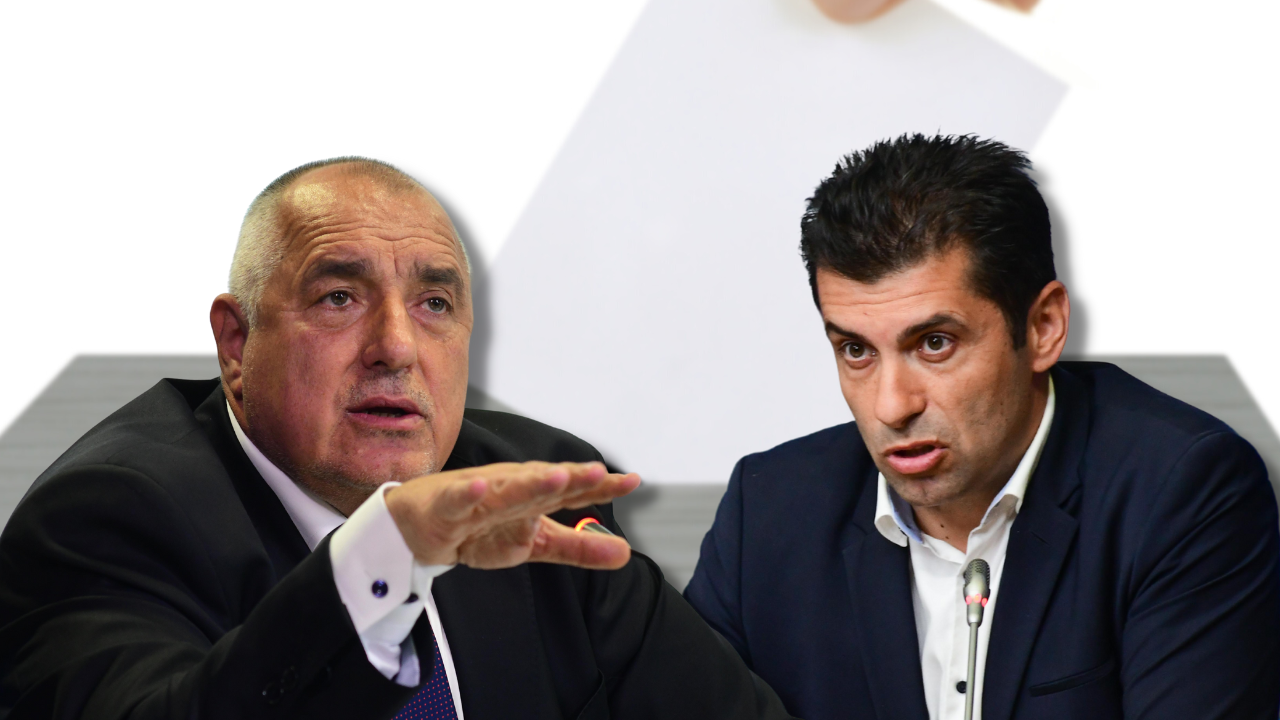It is very likely that seven parties will enter the next parliament, according to
a national survey by "Exacta Research Group", conducted between September 10 and 17 through face-to-face interviews among 1,050 adult Bulgarians in 100 nests in 71 settlements of the country.
A stratified two-stage sample with a quota according to basic socio-demographic parameters was used.
The research was carried out with the funds of "Exakta".
Data on electoral attitudes as of September 17 show that GERB - SDS has a share of 26.2% of the voting Bulgarians.
The second political force is "Continuing the Change" with a result among the voters of 18.1%.
Third are "BSP for Bulgaria" with a result of 12.5%, fourth - DPS with a result of 10.3%, fifth are "Vazrazhdane" with a result of 9.5% of the voters.
It is followed by "Democratic Bulgaria" with a result of 7.5%.
"There is such a people" so far retain their chances of participating in the next parliament with a result of 5.4% of the voters.
"Bulgarian Rise" has a share of 4 percent of the voters.
A new Gallup survey reveals the fears of Bulgarians
The result of "Bulgarian Rise" of 4% does not guarantee their participation in the next parliament, sociologists note and add that for this party everything will be decided in the last weeks of the campaign despite the high approval rating of its leader Stefan Yanev.
The high personal rating of Maya Manolova does not ensure that her formation will get into the parliament, despite the positive trend of "Stand up, BG" since the beginning of the campaign, analysts comment.
It is very likely that seven parties will enter the next parliament, since "Bulgarian Rise" cannot be called a safe participant in the next National Assembly with its 4%, according to "Exakta".
The third place continues to be the political goal of three parties - the BSP, the DPS and "Vazrazhdane", but according to data from the current research, the BSP has a certain lead over the other two formations.
In the days remaining until the vote, one can expect strong competition to win the third place, as well as efforts by the PP to draw electorates from all possible directions.
For "Bulgarian Rise" the period is decisive for getting into the next parliament, the agency notes.
Intensifying the campaign through the use of black PR and compromising materials in the final phase may turn away rather than attract voters, they say.
From the beginning of the campaign to the present, the share of those willing to vote has slightly shrunk.
As of September 17, "Exakta" data show that it is possible to vote about 47% of the interviewed, about or slightly less than 2.5 million voters living in Bulgaria.
30% of Bulgarians currently state that they are more likely not to vote, and about a quarter are hesitant about how to act and who to elect.
From these data, it is clear that the settling of the electoral strata will continue literally until the election day itself, the analysts point out.
According to the data, two-thirds of Bulgarians are of the opinion that after October 2, the country should have a regular government, even if this means certain compromises of the parties in coalition.
A third of those who took part in the research are strongly against making a regular government at the price of compromises.
For forming a regular government, even at the cost of compromises, more often women, elderly and poor people, as well as residents of small settlements, are declared.
The most prominent opponents of compromises in forming the next cabinet are the young Bulgarians and the voters of "Vazrazhdane".
It is clear from the research that all the leaders of the main parties with a chance to enter the parliament enjoy the approval of about 90% of their voters.
Above these values is the approval among the own electorates for Boyko Borisov, Hristo Ivanov, Kiril Petkov and Asen Vassilev.
The confrontation between the leaders logically, given these data, works for permanent division among the people.
Global realities suggest that efforts should be made in our country to change the model of fierce confrontation and to think about a partnership in which the parties do not depersonalize themselves, analysts comment.
There is no leader of a political party in our country whose approval rate is higher than his disapproval on the eve of the parliamentary elections, "Exakta" states.
Boyko Borisov is the most approved leader of a political party with an approval rating of 29%.
He is followed by Stefan Yanev, who is approved by 28%.
Maya Manolova is approved by 25%, Kiril Petkov is also approved by 25%, and Asen Vassilev - by 24%.
Cornelia Ninova is approved by 20% of Bulgarians, and Hristo Ivanov - by 19%.
Slavi Trifonov won the approval of 18% of voters, Kostadin Kostadinov - 15%, Mustafa Karadayi and Atanas Atanasov - 14% each.
Exakta recorded the highest disapproval of party leaders Slavi Trifonov and Kostadin Kostadinov - respectively 72% and 70% disapproval.
As of September 17, the disapproval of Boyko Borisov was comparable to that of Kiril Petkov - for both of them it amounted to 63%.
"Trend": 77% of Bulgarians want affordable gas, electricity and fuel prices from the new government
Outside of this ranking of party leaders, President Rumen Radev is approved by 55% of Bulgarians of legal age, and caretaker government Prime Minister Galab Donev is approved by 31%.
Both the president and the prime minister's caretaker cabinet have positive ratings, meaning approval of their work is a higher share than disapproval.
Although for the last year we have observed a tendency towards a gradual decline in the approval of the president, he remains for now the most approved politician in our country.
This rating of the president burdens him with serious responsibility for the overall political processes in the country, sociologists point out.
